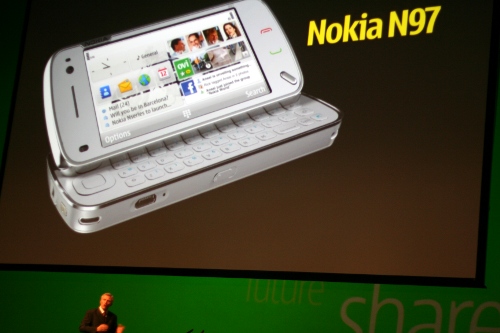
In the US we have a somewhat myopic view of cell phones. We have iPhones and Blackberrys and now Androids and Nexuses for smartphones, and a whole bunch of feature phones from manufacturers like LG and Motorola and Samsung. Notably absent from most wireless stores in the U.S. are Nokia, which is odd since Nokia owns more of the global cell phone market than its next three competitors combined. Part of this discrepancy is no doubt due to the market differences between U.S. carriers and wireless carriers in the rest of the world. But a large part of this can be explained by Nokia’s sheer arrogance.
When I was at Nokia World in late 2008, I had a very nice chat at a party with a Nokia employee. I asked him about Nokia’s relative scarcity in the U.S., and he said quite frankly that the problem was Nokia’s management’s opinion of their company. Being the world’s largest cell phone maker can give you some strong opinions about yourself: if you’re doing so well in the rest of the world, why should you change your tactics to get traction in the U.S., of all places? According to this slightly inebriated man, Nokia CEO Olli-Pekka Kallasvuo opened his negotiations with Verizon by stating “We don’t need you.” Not a lot of wiggle room in that position, and there’s really no where to go but backwards. Well, the carriers feel they don’t need Nokia. I guess both opinions are technically correct, since no one is going out of business. But Nokia is losing out on a tremendous market opportunity, and U.S. carriers are losing out on some great handsets.
Whether this anecdote is accurate or not, the fact remains that Nokia is the odd man out in the U.S. I think we can all forgive Apple’s walled garden approach with its iPhone and associated app store because Apple has been a computer and software maker for a long time: this is what they do, and they have the track record to prove that they do it well. I don’t know many people who really take Nokia’s Ovi initiatives very seriously, because it’s not a core strength of Nokia’s. They’re seen as a handset manufacturer, and the expertise therein does not prima facie allow them to build and maintain a kick ass software suite.
There’s a bit over at VentureBeat that digs into this a bit more. The basic premise is consistent with what the Nokia guy at the party told me.